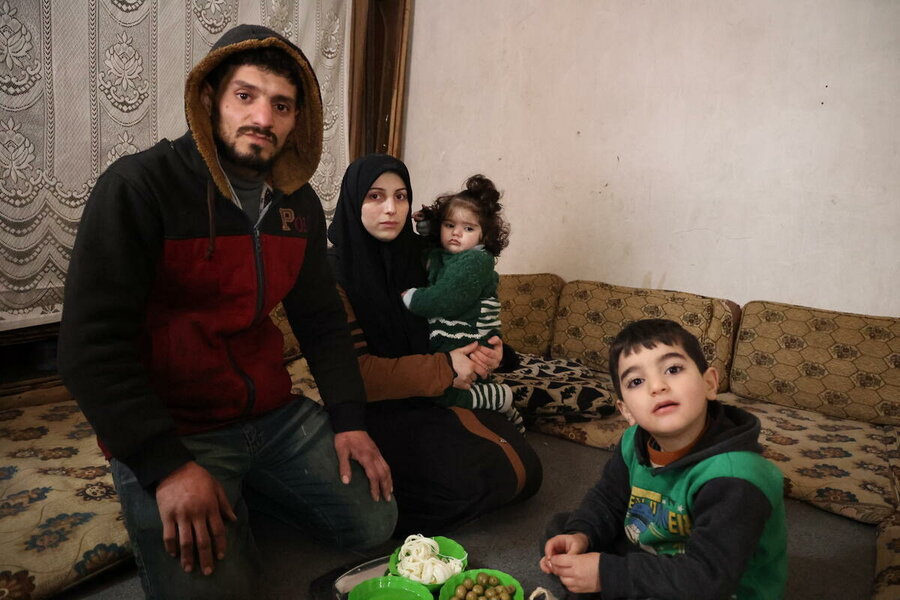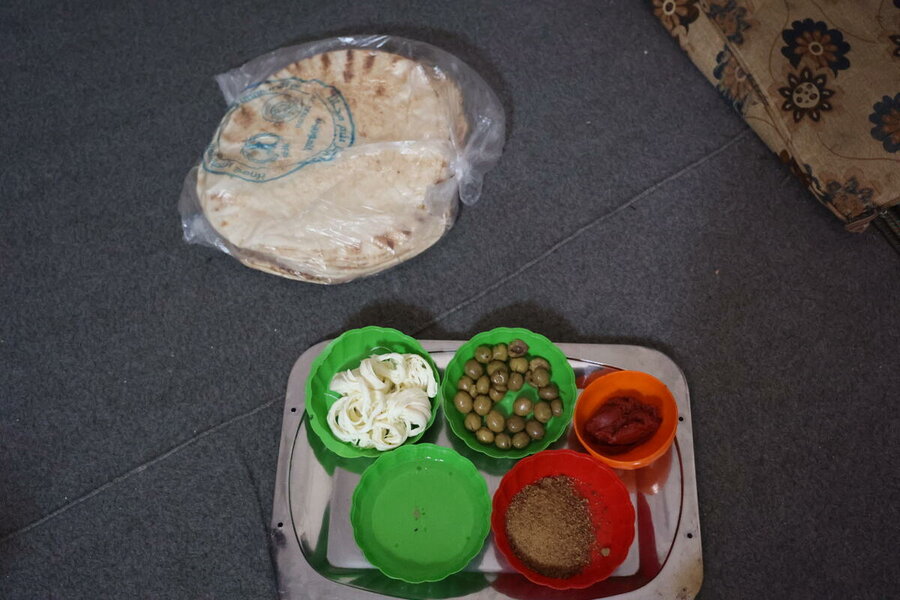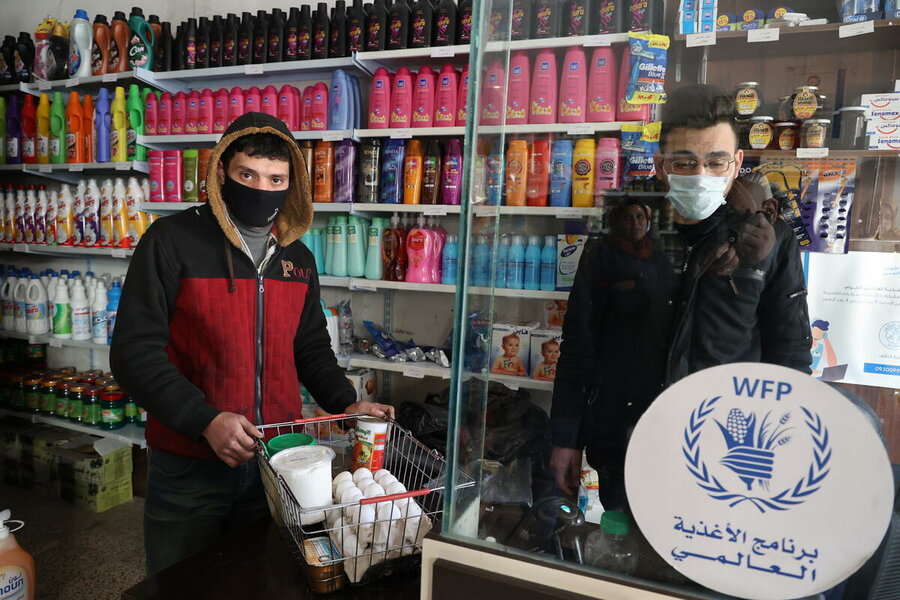
Mohammad used to make sweets - and a decent living - in a shop in Aleppo. When conflict erupted 11 years ago, a serious injury to his leg forced him to quit his job.
For years, Mohammad and his family moved from one place to another seeking safety. None of the odd jobs he took on enabled him to keep up with soaring costs.
Eventually, the gap between his income and expenses became unbridgeable. In 2018, Mohammad and his family decided to return to Aleppo only to find his home destroyed.

Staying with his brother, Mohammad started working as a street vendor selling tissues. "I had to choose a job that I could do while seated, as my injury meant I couldn't stand up for long," he says.
But the economic decline that took yet a sharper downturn in 2019 meant even fewer sales.
Still, the family pulled through the coronavirus pandemic and last year, Mohammad, qualified to receive food staples and a monthly cash transfer (e-voucher) from the World Food Programme (WFP) to cover critical food needs.
Over the past two years, food prices in Syria have increased over fivefold. Currently, a median income does not cover half the monthly food needs of an average family, let alone expenses such as healthcare and education.
Amid a global surge in food, fuel and fertilizer prices, Syrian families' ability to buy essentials is ever diminishing. Even those who have jobs are struggling to make ends meet.

In order to cope, Mohammad and his wife, Safa'a, eat less so there is more for their four children. Even the option of borrowing money is closed to them as few friends and family members can now afford to part with cash.
"It's impossible to afford all nutritious food now. Eggs, cheese, ghee, canned food and many other things are no longer affordable for us," says Mohammad as the family have breakfast - this is served late so that is doubles as lunch.
"Most of what we eat now comes from the assistance. It's very critical for us now."
The family buy cheese and olives using the WFP e-voucher while Mohammad gets oil from the in-kind portion of his assistance.






